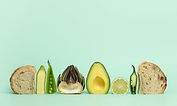Ultra-processed foods (UPFs) are everywhere—fast meals, sugary drinks, snacks in colorful packages. But while they save time, they may also be increasing your cancer risk. Here’s what science says about how these foods could be fueling a rise in cancer diagnoses among young adults—and what you can do to protect your health.
What Are Ultra-Processed Foods?
Think beyond your typical “junk food.” Ultra-processed foods (UPFs) are industrially manufactured products loaded with additives, preservatives, artificial ingredients, and other compounds designed to enhance flavor, texture, and shelf life. While they may be convenient and taste good, these foods often lack the essential nutrients your body needs to stay healthy.
Examples of UPFs include:
Sugary beverages: Sodas, energy drinks, and sweetened iced teas.
Packaged snacks: Chips, cheese puffs, crackers, granola bars, cookies, and snack cakes.
Instant foods: Instant noodles, microwavable soups, and boxed mac and cheese.
Frozen convenience meals: Pizza, lasagna, chicken nuggets, and burritos.
Breakfast cereals: Sugary options with long ingredient lists, including frosted flakes and chocolate cereals.
Processed dairy: Flavored yogurt cups, coffee creamers, and processed cheeses (e.g., cheese spreads or singles).
Condiments and spreads: Ketchup, mayonnaise, margarine, and artificially flavored jams.
Baked goods: Pre-packaged muffins, pies, pastries, and donuts.
Candy and sweets: Gummies, chocolate bars, hard candies, and marshmallows.
Processed meats: Bacon, sausages, hot dogs, ham, and deli meats.
Sweetened or flavored beverages: Sweetened plant-based milks, and artificially flavored waters.
These foods are engineered to fit busy lifestyles, but their nutritional shortcomings come with significant risks. If your diet relies heavily on UPFs, it’s time to consider their potential impact on your long-term health.
Emerging research suggests that ultra-processed foods aren’t just “empty calories”—they’re linked to chronic inflammation, nutrient deficiencies, and, most alarmingly, an increased risk of cancer.
The Cancer Connection: What Research Shows
Recent studies reveal that ultra-processed foods may contribute to the rise in cancer rates among young adults:
Why? These foods are often packed with harmful additives, lack protective nutrients, and promote inflammation—conditions that increase cancer risk.
Why Are Ultra-Processed Foods Harmful?
1. Additives and Chemicals
UPFs often contain emulsifiers, preservatives, and artificial colors, which may disrupt the gut microbiome. This disruption can lead to chronic inflammation, a known risk factor for cancer.
2. Low Nutritional Value
A diet rich in processed foods often lacks antioxidants, fiber, and essential nutrients that help protect against cellular damage.
3. Obesity and Cancer Link
Ultra-processed foods are typically high in sugar, unhealthy fats, and calories, contributing to obesity. Obesity is a major risk factor for cancers such as liver, endometrial, and colorectal cancer.
4. Prolonged Exposure
Regular consumption of UPFs from a young age increases lifetime exposure to carcinogenic compounds, amplifying cancer risks.
Young Adults and Rising Cancer Rates
Young adults are particularly vulnerable to the negative effects of ultra-processed food consumption:
Busy lifestyles and convenience culture make UPFs an easy choice.
Aggressive marketing targets younger demographics, promoting processed snacks and sugary beverages.
Early exposure to harmful additives and poor dietary habits may lead to long-term health consequences, including increased cancer risks.
How to Reduce Your Risk: A Cancer Prevention Diet
Improving your diet doesn’t mean giving up all convenience but making smarter choices. Follow these evidence-based tips to reduce your intake of processed foods that increase cancer risk:
Focus on Whole Foods: Choose fruits, vegetables, whole grains, and lean proteins for meals and snacks.
Check Food Labels: Look for simple ingredient lists and avoid items with excessive additives.
Cook More at Home: Preparing meals at home gives you control over the ingredients.
Limit Sugary Beverages: Replace soda with water, herbal teas, or sparkling water infused with natural fruit.
Avoid Processed Meats: Swap deli meats for fresh, unprocessed options like grilled chicken or plant-based alternatives.
Small Steps Toward Big Changes
Transitioning away from ultra-processed foods is a powerful step in adopting a cancer prevention diet. Start with small, manageable changes, like replacing one processed snack a day with a whole-food option. Over time, these shifts can lead to significant health benefits.
Conclusion: Protect Your Health Through Diet
The connection between ultra-processed foods and cancer is a wake-up call for young adults to prioritize better nutrition. While UPFs are convenient, their risks far outweigh the benefits. By embracing a diet rich in whole, minimally processed foods, you can take proactive steps to reduce your cancer risk and improve your overall well-being.







Comments